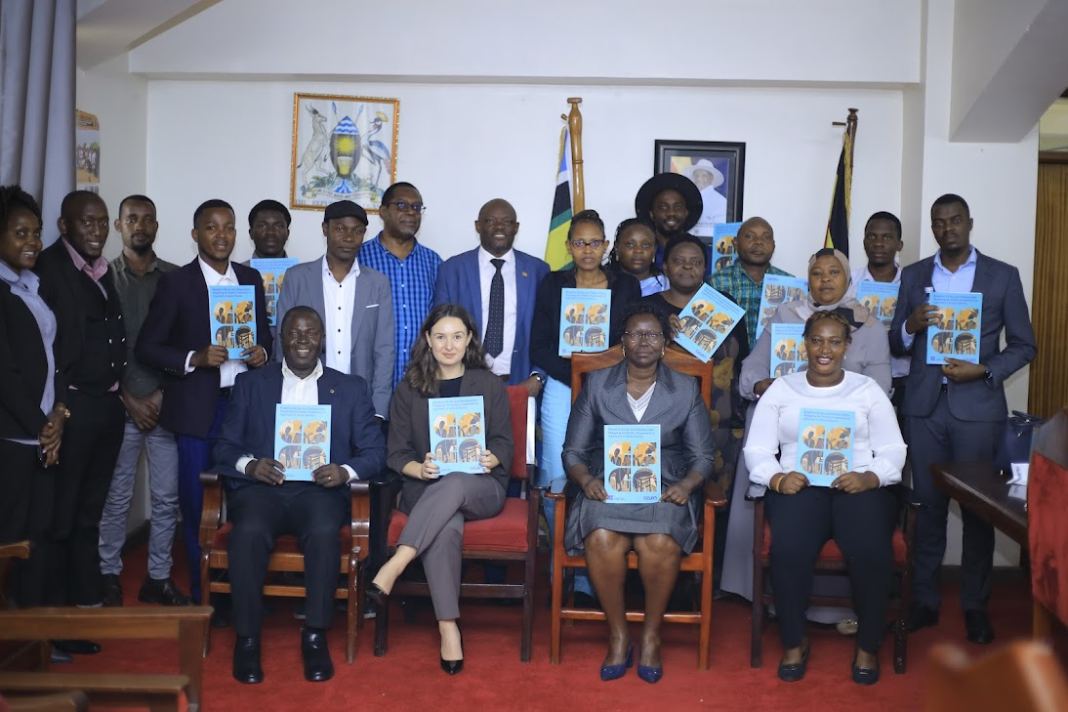Selam in partnership with Connect for culture Africa have presented the Baseline study and stakeholder mapping for public investment in Uganda’s culture sector aimed at providing valuable insights into the current state of public investment in the culture sector and to identify key stakeholders within the culture sector to enhance lobbying efforts for cultural development.
The study on the state of public investment in the culture sector in Uganda presents both challenges and opportunities. The challenges relate to lack of specific classification of culture as an independent vote in the realms of public investment budgeting processes and the lack of detailed data on where public resources meant for culture and creative sectors are spread across different institutions of government.
During the presentation at the Ministry of Gender and Labour, Julius Bwanika, Secretary General, Pearlwood noted that the culture and creative industry lacks detailed data for where public resources meant for the sector are spread across different institutions of government.
Bwanika said, “There is less engagement with the stakeholders. The government offers only 0.5 percent of the national budget which is too little for the smooth running of the sector’s activities.”
He called for the government to increase the budget to at least 1%.
He noted, “Total local government expenditure over the last 5 years has been less than 1% per year. The highest expenditure has been 0.4% in the year 2019/2020. The highest expenditure on culture at municipality level was 0.3% in 2019/2020 of the National budget. Expenditure on culture at district level (Local governments) also remains below 1% across for the last 5 years. The expenditure was ranging between 0.1- 0.4 with higher in the year 2019/2020 at 0.4% compared to other years.”
To identify challenges, the study underscored opportunities for multi-agency engagement and recommended creating a sector Working Group to champion policy reform and investment growth. Ultimately, the study aimed to establish a foundational understanding for lobbying efforts and strategic partnerships to develop Uganda’s cultural sector.
He also suggested that a direct ministry for the creative industry be formed since it is hectic to be funded by different ministries in doing research and monitoring and evaluation
Much funding is required in the culture sector both directly and indirectly since the sector plays a big role in economic development through a more diverse approach in reaching out to the public.
The Commissioner at the Ministry of Gender, Juliana Naome said that in partnership with the government, they will find a long-lasting solution to end the loopholes in the sector.
“I implore the stakeholders to focus on coordination. More emphasis on advocacy will help in lobbying to strengthen the sector and also reaching out to a wider audience,” she said.
The absence of comprehensive data on cultural sector investment further hampers effective planning and decision-making, as existing statistics are sparse and often outdated. In particular, limited data on the economic contributions and employment figures in the sector make it difficult to advocate for increased public funding, despite clear growth potential.
The study recommends and emphasizes a minimum allocation of 1% of the national budget to stimulate growth in culture and creative industries. Key policy suggestions include establishing a Sector Working Group anchored in the Office of the Prime Minister to streamline inter-agency coordination and lobbying efforts.
Further, targeted capacity-building initiatives are recommended to enhance professionalism and skills within the sector, alongside robust intellectual property protections to safeguard cultural outputs. To support these goals, local governments should decentralize budget allocations for culture and include the creative sector in local planning processes, thereby enabling broader access to funding and community involvement in cultural programs.
The study underscores involvement of local communities in planning and implementation processes for culture programmes, policy makers and other government officials may well discover that people are willing to work hard to make sure their cultural heritage development programs achieve the desired objectives.








